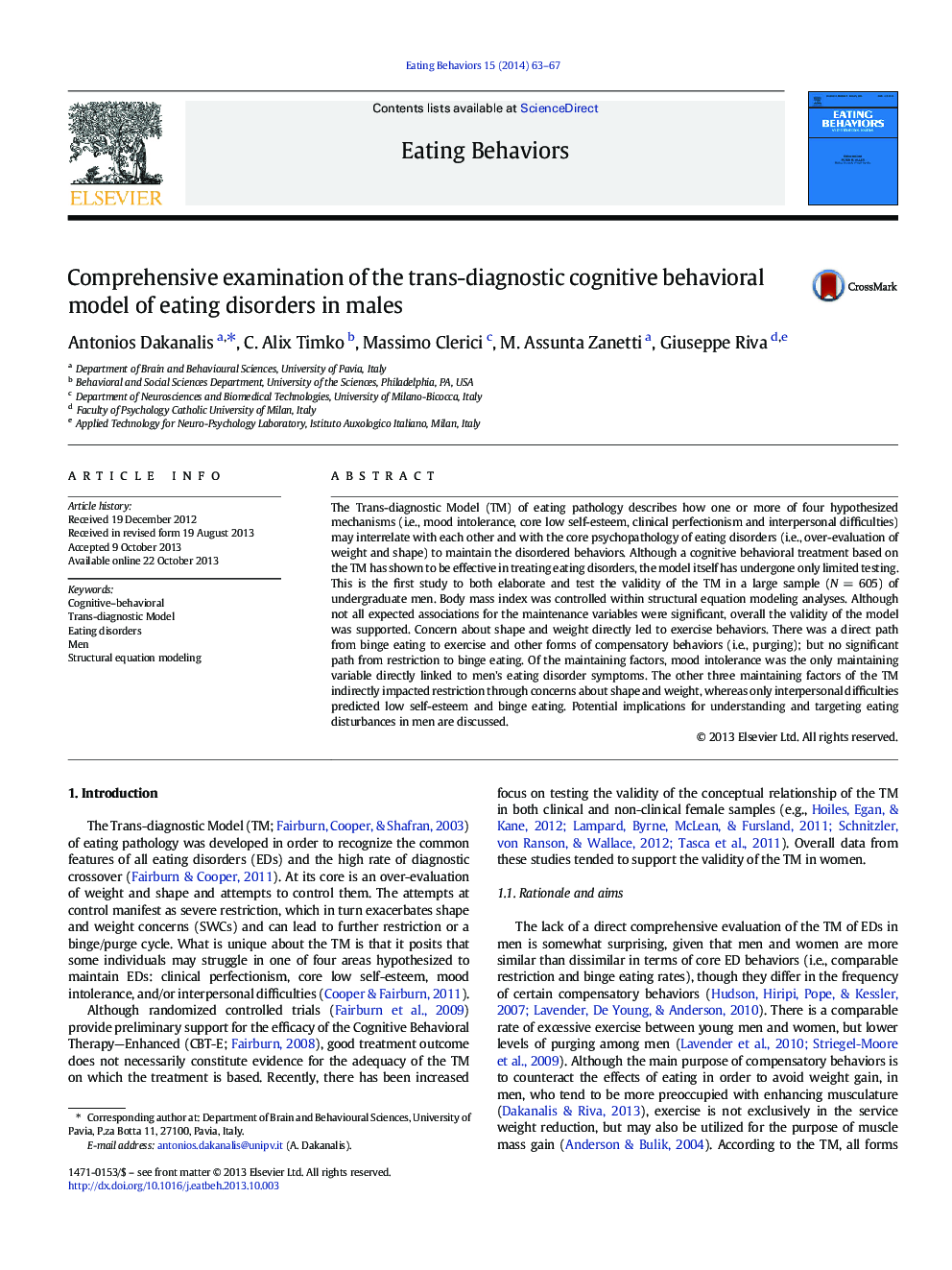| کد مقاله | کد نشریه | سال انتشار | مقاله انگلیسی | نسخه تمام متن |
|---|---|---|---|---|
| 906425 | 917005 | 2014 | 5 صفحه PDF | دانلود رایگان |
• The Transdiagnostic Model for eating disorders appears to be valid in men.
• Restriction did not predict binge eating.
• Mood intolerance was directly linked to eating disorder symptomatology in men.
• Other maintaining factors indirectly impacted restriction through body concerns.
• Exercise can serve a non-compensatory function in men.
The Trans-diagnostic Model (TM) of eating pathology describes how one or more of four hypothesized mechanisms (i.e., mood intolerance, core low self-esteem, clinical perfectionism and interpersonal difficulties) may interrelate with each other and with the core psychopathology of eating disorders (i.e., over-evaluation of weight and shape) to maintain the disordered behaviors. Although a cognitive behavioral treatment based on the TM has shown to be effective in treating eating disorders, the model itself has undergone only limited testing. This is the first study to both elaborate and test the validity of the TM in a large sample (N = 605) of undergraduate men. Body mass index was controlled within structural equation modeling analyses. Although not all expected associations for the maintenance variables were significant, overall the validity of the model was supported. Concern about shape and weight directly led to exercise behaviors. There was a direct path from binge eating to exercise and other forms of compensatory behaviors (i.e., purging); but no significant path from restriction to binge eating. Of the maintaining factors, mood intolerance was the only maintaining variable directly linked to men's eating disorder symptoms. The other three maintaining factors of the TM indirectly impacted restriction through concerns about shape and weight, whereas only interpersonal difficulties predicted low self-esteem and binge eating. Potential implications for understanding and targeting eating disturbances in men are discussed.
Journal: Eating Behaviors - Volume 15, Issue 1, January 2014, Pages 63–67
